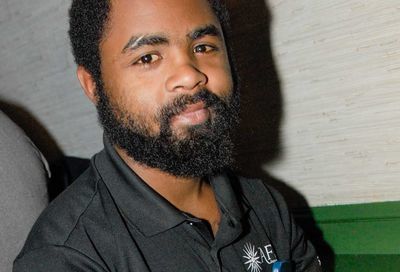Council Repeals Armstrong Amendment
Bill repeals exemption allowing religiously-affiliated educational institutions to discriminate based on sexual orientation
The D.C. Council on Tuesday passed a bill repealing an act of Congress known as the Armstrong Amendment, which carves out an exemption to sexual orientation nondiscrimination protections contained in the D.C. Human Rights Act, thereby allowing educational institutions affiliated with religious organizations to discriminate based on sexual orientation.

The Armstrong Amendment, introduced by former U.S. Sen. William Armstrong (R-Colo.) and enacted in 1988 as part of an appropriations bill for the District, was initially passed in response to an appeals court decision that found that Georgetown University had violated D.C.’s Human Rights Act by denying equal treatment to a gay student group. The amendment states that religiously-affiliated educational institutions may be able to “deny, restrict, abridge or condition the use of any fund, service, facility, or benefit, or the granting of any endorsement, approval, or recognition” to a person or group that promotes or condones homosexuality.
In addition to repealing the Armstrong Amendment, the bill, which was shepherded through the Council’s Committee on the Judiciary and Public Safety by Chairman Tommy Wells (D-Ward 6), also addresses some housekeeping issues related to the D.C. Office of Human Rights (OHR) and the application of the Human Rights Act. It requires the director of OHR to have a “demonstrated professional background” in human rights law, amends the Human Rights Act to require that OHR’s annual report include information on any concluded OHR investigations or directors’ inquiries, and clarifying that the 6-month notice requirement for those pursuing legal action against the District and seeking unliquidated damages does not apply to actions brought under the Human Rights Act.
Richard J. Rosendall, president of the Gay and Lesbian Activists Alliance (GLAA), the local LGBT rights organization that testified in favor of the bill, praised the Council’s actions on Tuesday, calling the Armstrong Amendment an “obnoxious provision.” Rosendall said that opponents of the bill have misrepresented the Council’s actions by claiming the bill would force religiously-affiliated educational institutions to accept or validate homosexuality. However, he said, the bill simply requires educational institutions to abide by the D.C. Human Rights Act.
“Any minister can deny us sacraments and condemn us from the pulpit,” Rosendall said. “But this is not about moral approval. As far as educational institutions are concerned, they have to play by the same rules as everyone else.”
Rosendall also said he believes that Congress will not end up successfully challenging the bill, which is slated to be signed into law by Mayor Vincent Gray (D), but added that institutions like the Catholic University of America, whose legal counsel testified against the bill in a September hearing, could attempt to pull an end-run around the legislation by asking lawmakers on Capitol Hill to try and quash the measure.
“Congress can’t tell the D.C. Council what to do. They can block or overturn it, but our legislature is elected to serve us,” Rosendall said.
In a way, for Republicans to pick a fight over this would be a good thing for us because it would show how unreasonable they are,” Rosendall added. “”[Opponents] have to lie about the bill to make it seem unreasonable.”
Support Metro Weekly’s Journalism
These are challenging times for news organizations. And yet it’s crucial we stay active and provide vital resources and information to both our local readers and the world. So won’t you please take a moment and consider supporting Metro Weekly with a membership? For as little as $5 a month, you can help ensure Metro Weekly magazine and MetroWeekly.com remain free, viable resources as we provide the best, most diverse, culturally-resonant LGBTQ coverage in both the D.C. region and around the world. Memberships come with exclusive perks and discounts, your own personal digital delivery of each week’s magazine (and an archive), access to our Member's Lounge when it launches this fall, and exclusive members-only items like Metro Weekly Membership Mugs and Tote Bags! Check out all our membership levels here and please join us today!


















